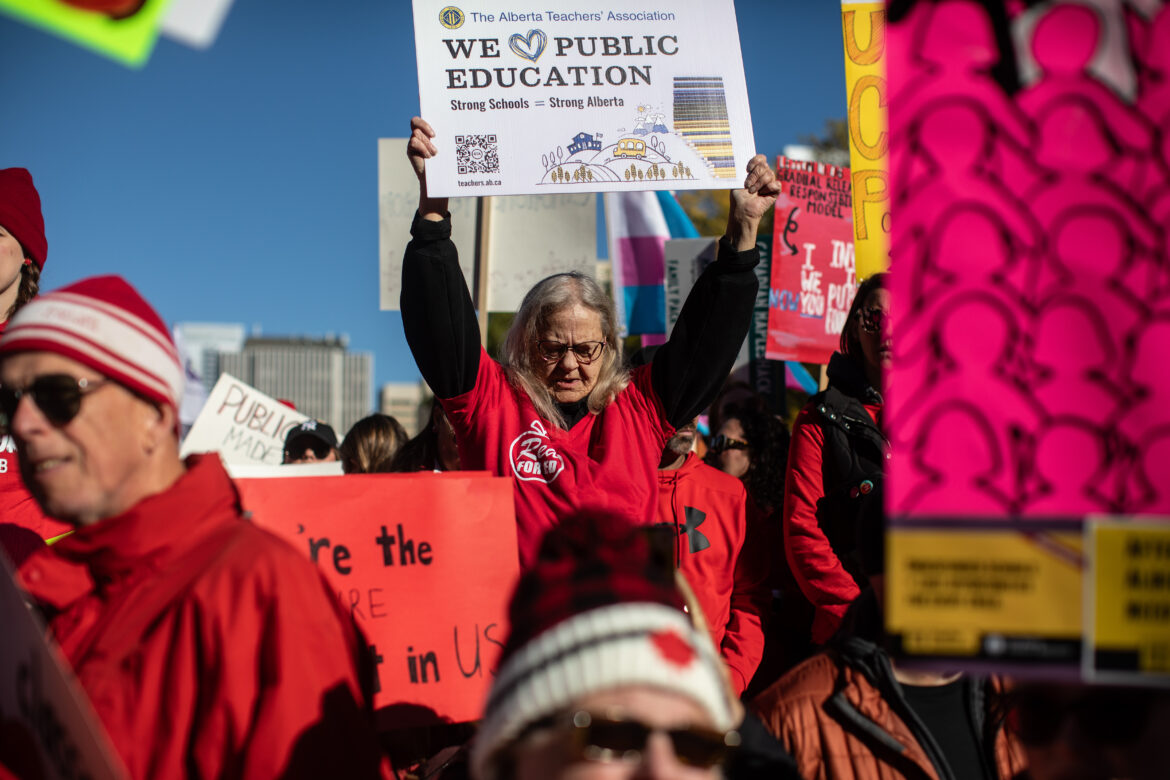By Aaron Sousa
As an Alberta-wide teachers strike drags into its fourth day, a labour relations expert doesn’t see why the group in charge of bargaining delayed their lockout.
Earlier this week, the Teachers’ Employer Bargaining Association, or TEBA, notified the Alberta Teachers’ Association that a lockout would begin later Thursday.
Jason Foster, a labour relations professor at Athabasca University, said the move, which he called “unusual,” effectively stops teachers from changing how they strike, taking options like rotating job action off the table.
It also means school boards would now have the option to start laying off workers, such as educational assistants and custodians, who have been working since the strike began Monday, he said.
“That would be the second major impact of this coming into effect,” Foster said Wednesday.
He also said TEBA’s delay in issuing the lockout made him furrow his brow.
“They had plenty of notice,” he said. “They could have easily issued their lockout notice to align with the strike deadline, so I’m not sure why they didn’t.”
In a statement, bargaining association chair Scott McCormack said the rotating strikes by educational assistants earlier this year created “tremendous uncertainty,” and a lockout makes sure that doesn’t happen again.
The job action by 51,000 Alberta teachers — considered the largest walkout in provincial history — stems from a dispute with Premier Danielle Smith’s government over long-standing concerns, such as wages, overcrowded classrooms and student complexities.
The government’s latest offer, rejected in a vote by teachers, included a 12 per cent wage increase over four years and hiring 3,000 more teachers.
The strike affects more than 740,000 students across 2,500 schools.
Jason Schilling, president of the Alberta Teachers’ Association, has said classrooms have been decimated by what he has called chronic underfunding by the province. Smith has said in order to restart negotiations, teachers have to come back with a proposal they approve of.
Foster said there are remarkable parallels between the current job action and the last time teachers went on strike in 2002, noting how the main issues remain the same.
He doesn’t see the job action ending quickly through a deal and expects the government will inevitably order teachers back to work.
But doing so is dangerous, he said, because a back-to-work order wouldn’t resolve the underlying conflict with teachers and could hurt any political popularity the government has with the Albertans supporting them.
“That may come back to hurt the government politically quite significantly,” he said.






